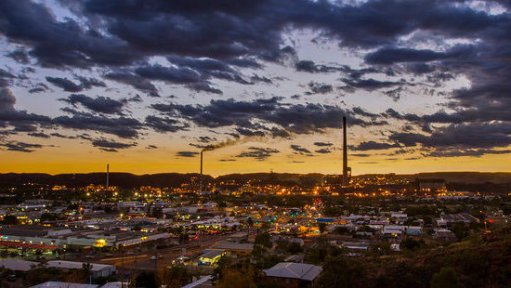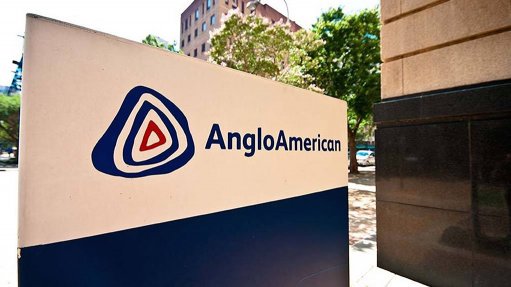Busa warns that lack of detail in IRP 2023 makes it impossible to assess plan’s credibility
Business Unity South Africa (Busa) will approach the Department of Mineral Resources and Energy (DMRE) to secure the technoeconomic information that has been used to inform the assumptions contained in the draft Integrated Resource Plan (IRP), which was released for public comment on January 4 absent an associated data book.
The head of Busa’s energy and environment desk, Happy Khambule, tells Engineering News that the document is “thin on detail” and that, without securing the additional data, it will be impossible to assess its credibility, including the significant changes to the generation technology allocations for the period from 2024 to 2030 when compared with the prevailing IRP 2019.
The most significant change relates to the allocation for new gas-to-power, which has been increased from the 3 000 MW outlined in the IRP 2019 to 7 220 MW, raising the installed base of gas and diesel generation to 11 050 MW in 2030, up from the 6 380 MW assumed in the current plan.
The IRP 2023 also bucks global trends towards higher renewable energy investment by planning for about 30% less utility-scale solar photovoltaic and about 55% less utility-scale wind investment by 2030 than was planned for in IRP 2019.
Busa is also concerned, however, that the draft plan continues to include loadshedding until 2027, unless the energy availability factor (EAF) of the Eskom coal fleet recovers dramatically from about 50% currently to between 66% and 69%.
While this represents a moderation in the EAF relative to the 70% assumption in the IRP 2019, it would nevertheless require an extremely sharp turnaround in the performance of the aged and under-maintained fleet, which has become extremely unpredictable and unreliable.
Khambule says including loadshedding in the IRP is not only unprecedented, as it implies that even the plan itself is premised on failing to meet anticipated demand, but he adds that the 2027 date also contradicts the ambitions set by government and business in the National Energy Crisis Committee to address loadshedding by the end of 2024.
“As it stands, the draft IRP does not come across as a well thought-through plan that offers a holistic picture of the electricity supply industry and the changes that are taking place technologically, as well as structurally, as outlined in the Electricity Regulation Amendment Bill that is currently before Parliament,” Khambule states.
This lack of holism is also reflected in the document’s demand assumptions, which fail to take account of the anticipated growing role for electricity in industry and the transport sectors, either directly or through the production of green hydrogen.
“These misalignments imply that there is no shared understanding within government about how the electricity crisis should be tackled and by when it will be resolved.
“There also appears to be a lack of inter-government collaboration on the future role of electricity in the economy as a whole.”
Busa is also concerned about the document’s seemingly contradictory stance regarding the role of the private sector, with much of the plan reliant on private investment but with that potential underrepresented both with its yearly allocation for distributed generation of only 900 MW and the curtailment of wind and solar, where most private investor interest lies.
The immediate priority for Busa, however, is to secure the information required to enable it to make informed written comments by the deadline, which has been set as being February 23.
“Initially we were just happy that the document was finally released, as it has been delayed for some months.
“However, we soon realised how scant the details were and we have, thus, reached out to government to request more information,” Khambule reports, noting that the technical information associated with IRP 2019 was also shared by the department only after pressure from civil society.
However, Busa also believes that this participation should not be confined to written comments and that the IRP should also be subjected to public hearings and to scrutiny by the social partners at the National Economic Development and Labour Council (Nedlac).
The DMRE made no mention of hearings when publishing the document in the Government Gazette, but Khambule is optimistic that such hearings will be hosted and that Nedlac will also consider the plan before it is finally approved, with adjustments.
Comments
Press Office
Announcements
What's On
Subscribe to improve your user experience...
Option 1 (equivalent of R125 a month):
Receive a weekly copy of Creamer Media's Engineering News & Mining Weekly magazine
(print copy for those in South Africa and e-magazine for those outside of South Africa)
Receive daily email newsletters
Access to full search results
Access archive of magazine back copies
Access to Projects in Progress
Access to ONE Research Report of your choice in PDF format
Option 2 (equivalent of R375 a month):
All benefits from Option 1
PLUS
Access to Creamer Media's Research Channel Africa for ALL Research Reports, in PDF format, on various industrial and mining sectors
including Electricity; Water; Energy Transition; Hydrogen; Roads, Rail and Ports; Coal; Gold; Platinum; Battery Metals; etc.
Already a subscriber?
Forgotten your password?
Receive weekly copy of Creamer Media's Engineering News & Mining Weekly magazine (print copy for those in South Africa and e-magazine for those outside of South Africa)
➕
Recieve daily email newsletters
➕
Access to full search results
➕
Access archive of magazine back copies
➕
Access to Projects in Progress
➕
Access to ONE Research Report of your choice in PDF format
RESEARCH CHANNEL AFRICA
R4500 (equivalent of R375 a month)
SUBSCRIBEAll benefits from Option 1
➕
Access to Creamer Media's Research Channel Africa for ALL Research Reports on various industrial and mining sectors, in PDF format, including on:
Electricity
➕
Water
➕
Energy Transition
➕
Hydrogen
➕
Roads, Rail and Ports
➕
Coal
➕
Gold
➕
Platinum
➕
Battery Metals
➕
etc.
Receive all benefits from Option 1 or Option 2 delivered to numerous people at your company
➕
Multiple User names and Passwords for simultaneous log-ins
➕
Intranet integration access to all in your organisation





















